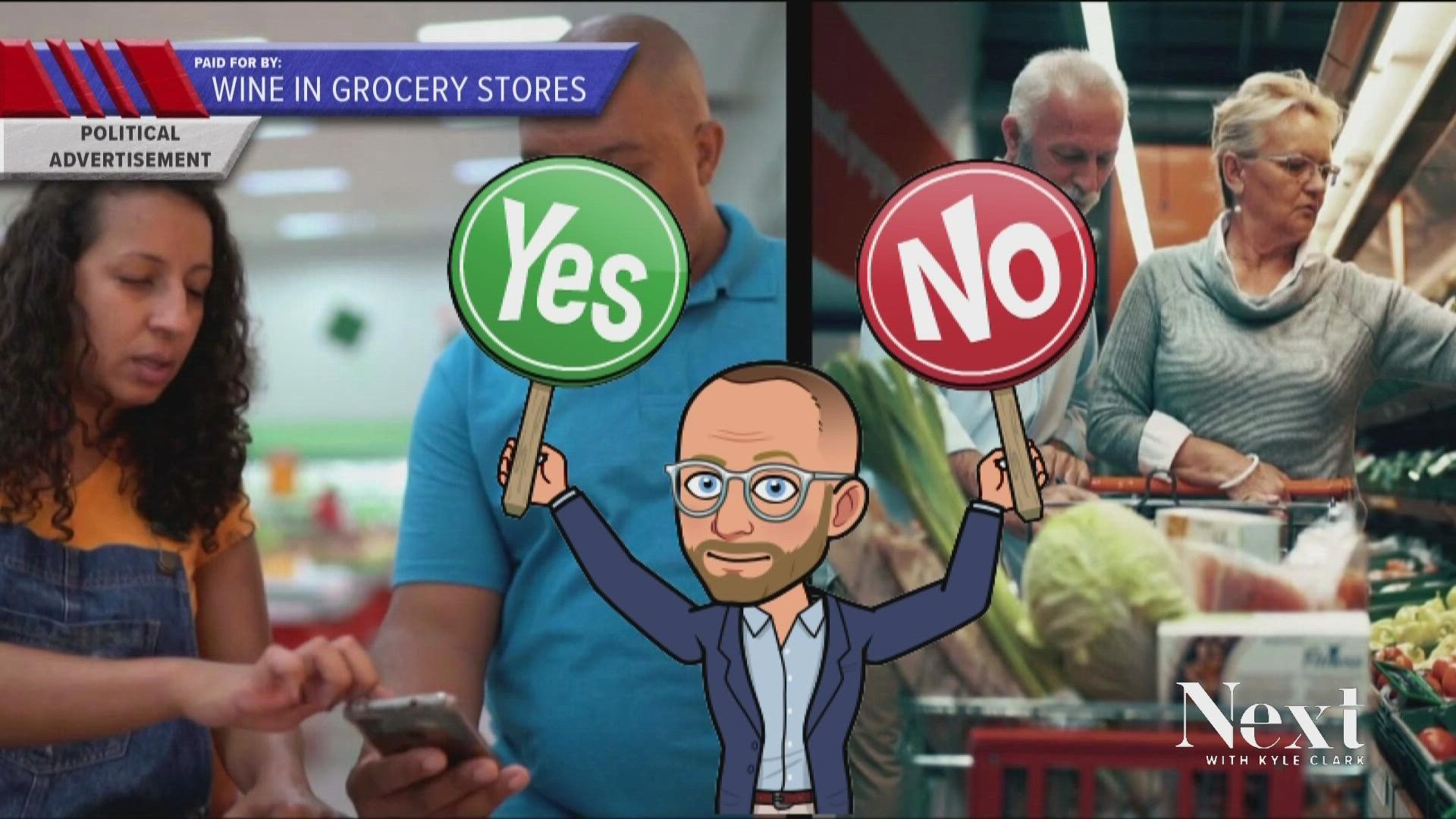COLORADO, USA — Two similar yet unrelated ballot issues are being packaged together in a new political ad.
The committee "Wine in Grocery Stores" has an ad that does not decipher between which claims are for Proposition 125 and which ones are for 126.
Proposition 125 is about allowing grocery stores to sell wine, which is currently limited to liquor stores.
Proposition 126 would let delivery apps bring alcohol from restaurants, bars, liquor stores and grocery stores to your front door.
The first claim in the ad is about Proposition 125.
AD/CLAIM: "So that adults have the convenience of buying wine in a grocery store without making extra stops and adding to our to-do list."
VERDICT: Yes and no, depending on if you are a native or transplant.
Wine cannot be sold in grocery stores, so Colorado wine drinkers have had to go to a liquor store to get it. Is that an 'extra stop' or 'adding to our to-do list'? It has always been that way in Colorado. In reverse, however, a yes vote on 125, would eliminate a stop if you wanted to buy wine while getting groceries.
In 2016, state lawmakers passed a bill, signed by then-Gov. John Hickenlooper (D), that allowed grocery and convenience stores to sell full-strength beer in one of their locations in the state. It also phased out 3.2% alcohol by volume beer starting in 2019.
In 2018, lawmakers passed a bill, signed by Hickenlooper, which allowed additional 3.2 beer licenses to be converted to licenses that allow for the sale of full-strength beer.
However, wine and hard liquor still require a visit to the liquor store.
State law does allow for multiple exceptions. Each grocery store with a pharmacy is allowed up to eight locations that can sell full-strength beer, wine and spirits. To be able to have multiple liquor licenses, the grocery store must buy out two retail liquor stores, including all within 1,500 feet of the store.
The next claim in the ad is about Proposition 126.
AD/CLAIM: "Or the convenience of ordering a bottle of wine with a takeout order, delivered from a local restaurant. Which could help 6,000 Colorado small businesses."
VERDICT: This is an overstatement.
Bars, restaurants, liquors stores and grocery stores are allowed to deliver alcohol, but they have to use their own employees, not a third-party delivery service.
Bars and restaurants have been allowed to deliver alcohol since 2020 because of COVID, and currently, lawmakers have that going away in July 2025.
Proposition 126 would allow a company like DoorDash to deliver alcohol for those businesses.
Which would explain why DoorDash has contributed $3.3 million dollars to the campaign that produced the ad.
InstaCart, which delivers groceries, and perhaps alcohol if 126 passes, has also contributed $3.3 million.
Grocery chains are also kicking in.
Whole Foods, Target, Albertsons Safeway and Kroger, the parent company of King Soopers, have given more than $1 million each.
So, who is spending money against the two issues?
The committee is called "Keeping Colorado Local" and is funded by local liquor stores, with about $531,000 as of Sept. 19.
If 125 passed, liquor stores would only have exclusivity of selling hard liquor.
SUGGESTED VIDEOS:

